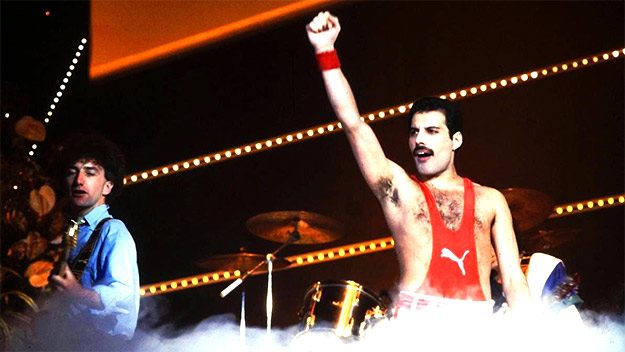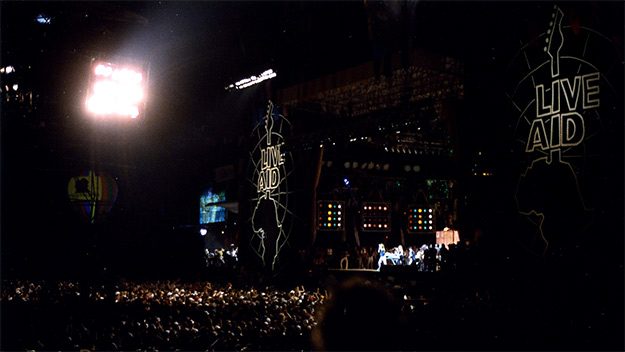Bohemian Rhapsody delivers brilliance when it comes to performance, but falls flat if you’re looking for an accurate biopic of the man behind the mic.

As someone born in the 1990s, I feel no closer to understanding what Freddie was like as a person and how he dealt with people when he wasn’t performing. The film appears to be an extended cover band performance with a few snippets of Freddie’s struggles thrown in before finishing with one final karaoke session. What I know Freddie for is his eccentric performance and his vocal range, which can be discerned from his live performances and music videos. As I wasn’t a member of the world during the turmoil he faced when he was performing before his death in 1991, my hope was this film would shed some light on the man behind the voice and the band as a whole.
One of the most pressing issues with this film, however trivial, is how obscene they made Freddie’s teeth seem. The teeth gifted to Rami Malek were more akin to pastry cutters than actual incisors which made it very difficult for me to focus on some parts of the film. I watched in agony as Malek attempted to get his top lip over the garden trowel in his mouth.

Another issue is the development of Freddie’s character. The man we see at the bus stop at the start of the film is already the fully developed front man that you see at the end. There is nothing about his childhood in Zanzibar or his musical development as he learns to play the piano and guitar and discovers his love for rock music. His confidence in his ability is apparent from the very beginning, leaving very little room for any character development, except with regards to his sexuality. Even this, the most secretive and complicated aspect of Freddie’s private life, was developed very quickly and almost made to seem like the cause of Freddie’s troubled era.
The wild parties that inevitably cause the breakdown of Freddie’s relationship with the rest of the band are made to seem like a by-product of his sexuality as his new friends, the fickle people who sever his friendship with Brian May and the rest of the band, are all portrayed as leather clad homosexual men whose only interests are sex and partying, a very outdated stereotype.
The abrupt inclusion of Jim Hutton, the man who remains with Freddie until the end of his life, is very disappointing as it removes a crucial part of Freddie’s personal life. However, this may be worth sacrificing in order to end on the bands legendary Live Aid performance.

It may sound like an odd thing to hear but there was too much music in the film. Much of the time spent watching the many karaoke style music sessions could have been used to develop Mercury’s off-stage character and his relationship with his other band members, as the film only seems to deal with his on-stage persona. The lows that Freddie suffered are included in the film, but they are dealt with so quickly that it felt like they are simply included out of necessity and to fill gaps between the music, as if any further development of these points was going to ruin the overall nostalgia and feel of the film.
Unfortunately, although they are very impressive, the recreations of Queen’s greatest hits take centre stage whilst Freddie Mercury’s biopic is forced into the shadows, with his hardships used to fill the gaps.
